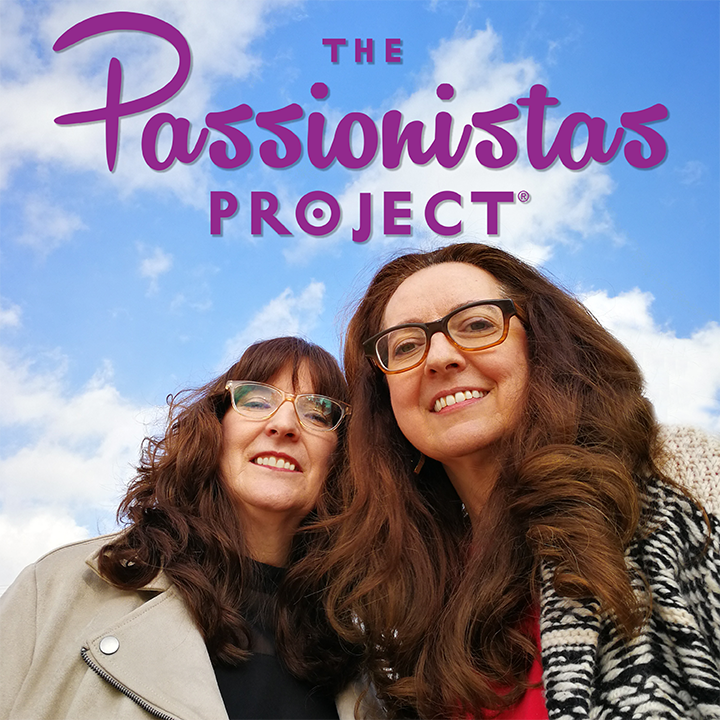Episodes
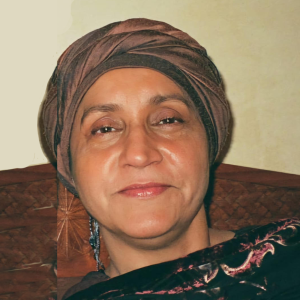
Tuesday Jun 11, 2024
Breaking the Cycle: Empowerment and Healing from Abuse and Trauma with Ruby Raja
Tuesday Jun 11, 2024
Tuesday Jun 11, 2024
Ruby Raja is an author, trauma facilitator, and domestic violence and abuse trainer. Ruby has over 25 years of working globally with women and children experiencing abuse to navigate health, education, and probation systems. Ruby has written Healing from Narcissistic Abuse, Journeys from Abuse to Freedom, because the participants of her master's thesis are women. All told they left abusive husbands and began living fulfilling lives after she provided them with information about abusers, the criminal justice system, and their rights. Ruby wrote a domestic violence program based on these findings.
Learn more about Ruby.
Learn more about The Passionistas Project.
Read the show notes.
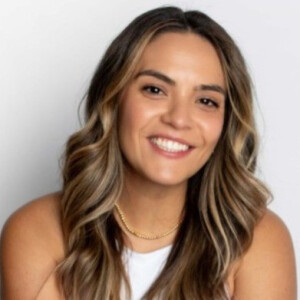
Wednesday Jun 05, 2024
The Power of Publicity — Insights from Expert Mercedes Barba
Wednesday Jun 05, 2024
Wednesday Jun 05, 2024
Mercedes Barba is the founder and owner of Mercedes Media, a publicity firm dedicated to helping entrepreneurs harness the power of media to establish credibility, increase their visibility, and attract clients to their businesses. With 15 years of experience and an Emmy nomination to her name, Mercedes vision is to underscore that media is an invaluable asset accessible to every entrepreneur. Its unparalleled potential for business owners, combined with Mercedes industry insights and strategies, empowers entrepreneurs to unlock their own opportunities for securing media features.
Learn more about Mercedes.
Learn more about The Passionistas Project.
Read the show notes.
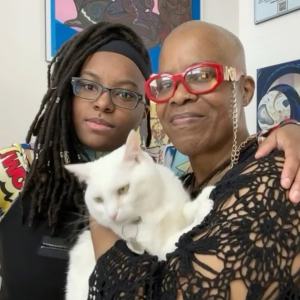
Tuesday May 28, 2024
Elevating Marginalized Voices in the Arts with Claire Jones and Amaranthia Sepia
Tuesday May 28, 2024
Tuesday May 28, 2024
Claire Jones and Amaranthia Sepia are a Black, invisibly disabled mother-daughter duo who are the co-founders of the grassroots project Sista Creatives Rising. SCR's mission is to help creative, marginalized women and marginalized genders gain accessibility and visibility in the arts to facilitate personal healing. They seek to strengthen their community by increasing the visibility of these artists through virtual events such as workshops, keynotes, and their virtual film event, Art and Mind. If you're joining us here live today, please feel free to drop any comments or questions in the chat, and we'll do our best to have them answered.
Learn more about Sista Creatives Rising.
Learn more about The Passionistas Project.
Read the Show Notes.
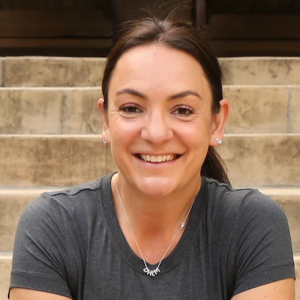
Tuesday May 21, 2024
Thoughtful Human: Maya Smith's Vision for Authentic Connection
Tuesday May 21, 2024
Tuesday May 21, 2024
Maya Enista Smith is the President of Thoughtful Human — a plastic-free, plantable card company, which was founded to help you find honest ways to communicate in dynamic relationships and challenging life circumstances. Thoughtful Human offers ultra-sustainable sentiments for real issues and a hub with resources and community to help people find the support they need. Maya recently joined Thoughtful Human after serving as the founding executive director of Lady Gaga's Born This Way Foundation for over a decade, where she worked to empower young people to create a kinder, braver world and also be a source for mental health support. Prior to her role at the foundation, she was CEO for Mobilize.org, where she worked with millennials to identify societal challenges unique to their generation and fund their solutions through grants. Thoughtful Human has expanded beyond greeting cards to include a podcast where they explore shame, stigma, and how to start and continue conversations around really sensitive issues.
Learn more about Maya.
Learn more about The Passionistas Project.
Read the show notes.
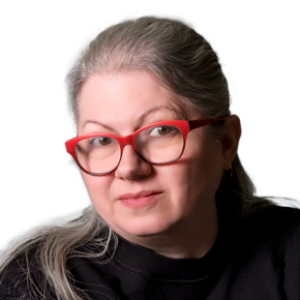
Wednesday May 15, 2024
Focus Forward: Lessons from Digital Photo Mentor Darlene Hildebrandt
Wednesday May 15, 2024
Wednesday May 15, 2024
Darlene Hildebrandt is a photographer and educator. Darlene helps amateur photographers improve their images through articles on her website, video tutorials on her YouTube channel, online courses, and worldwide photography tours. As a woman in a mostly male dominated industry in the 1980s, she never let being a female or standing five foot tall stop her from reaching for the sky and living her dreams.
Learn more about Darlene.
Learn more about The Passionistas Project.
Read the show notes.
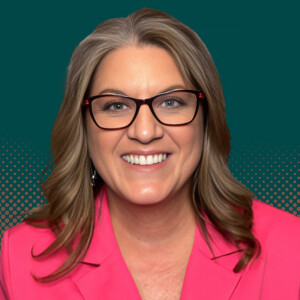
Wednesday May 08, 2024
Natalie Kime's Journey to Financial Empathy
Wednesday May 08, 2024
Wednesday May 08, 2024
Natalie Kime is a financial professional and coach who works with individuals, families, and business owners to educate them and help them become financially literate. She is passionate about helping others achieve their financial goals, create a life of their dreams, and leave a legacy behind. Natalie takes pride in removing the emotion that can often be tied to financial conversations. Bringing empathy and heart to her work. Her goal is to ensure that clients never have to make a choice of less than due to their financial situation and they and their loved ones can retire well and live with dignity.
Learn more about Natalie.
Learn more about The Passionistas Project.
Read the show notes.
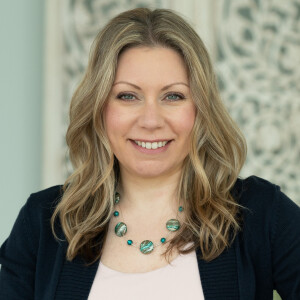
Tuesday Apr 30, 2024
Empowering Women Through Menopause with Dr. Amanda Tracy
Tuesday Apr 30, 2024
Tuesday Apr 30, 2024
Dr. Amanda Tracy has been enthusiastically helping women navigate hormone changes and improve their health and well being since becoming a licensed naturopathic doctor in 2005. In 2021, Dr. Tracy decided to take her expertise online, and transitioned her practice to focus specifically on supporting women through perimenopause and menopause. Having relocated to Northern California wine country, Dr. Tracy now works with women across the U. S., guiding them through the often chaotic effects of hormone fluctuations associated with perimenopause and menopause. Drawing on her clinical expertise and personal experience, Dr. Tracy's tailored programs and compassionate one on one sessions empower women over 40 to address frustrating symptoms like hot flashes, sleepless nights, anxiety, digestive issues, and stress.
Learn more about Dr. Tracy.
Learn more about The Passionistas Project.
Read the show notes.
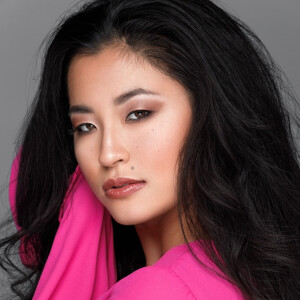
Tuesday Apr 23, 2024
Tuesday Apr 23, 2024
Dot Kelly is currently performing in the National Touring Company of the musical "Funny Girl." The show will be at the Ahmanson Theater in Los Angeles through Sunday, April 28th, and then moves to the Segerstrom Center for the Arts in Costa Mesa from May 28th to June 9th, before traveling across the country through the end of April 2025. Dot is a former Miss Virginia with the Miss America organization. She's traveled thousands of miles promoting cultural diversity awareness education with the Virginia Alcoholic and Beverage Coalition's Youth Education Initiative, highlighting alcohol abuse prevention and youth leadership. She's a creative and versatile professional who combines her expertise in event planning and performing arts to deliver unforgettable experiences for diverse audiences and clients. She holds a master's degree in performing arts leadership and management and a Bachelor of Fine Arts in Dance from Shenandoah University. As an Event Specialist at ESP Creative, she's played a pivotal role in curating and executing memorable events, including NBC's SNL Wrap Party, Baldor Food Group's Holiday Event, and several private events both nationally and internationally. She is skilled in creating event concepts, discussing event details with clients, securing venue, catering and other services, and preparing budgets.
Learn more about Dot Kelly.
Get tickets to "Funny Girl."
Find out more about The Passionistas Project.
Read the Show Notes.
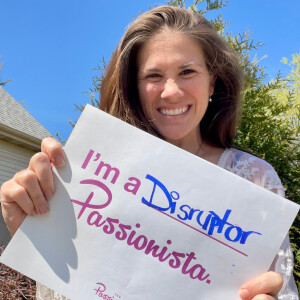
Wednesday Apr 17, 2024
The Lotus Effect: Illuminating Paths of Resilience with Kat Polsinelli
Wednesday Apr 17, 2024
Wednesday Apr 17, 2024
Kat Polsinelli, a beacon of transformation in our scarcity laden society, is on a mission to teach others how to embrace the mantra that everything happens for you, not to you. As the visionary behind The Lotus Effect, Kat passionately guides individuals to glean wisdom from their past, transforming it into a compass for a radiant future. Fueled by a personal journey through trauma and abuse, Kat shifted her narrative from victimhood to empowerment. Kat As a resilient coach, speaker, and author, she candidly shares her tumultuous path from teen pregnancy to a decade in an abusive relationship to inspire others to rewrite their stories. If you're joining us live here today, feel free to drop a comment or question in the chat for Kat, and we'll do our best to get them answered.
Learn more about Kat.
Learn more about The Passionistas Project.
Read the Show Notes.
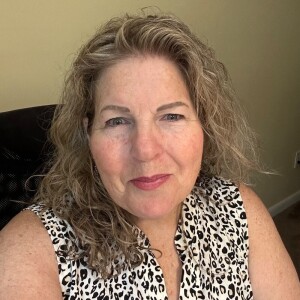
Wednesday Apr 10, 2024
Turning Pain into Power: Annmarie Entner's Approach to Life Beyond Autoimmune Disease
Wednesday Apr 10, 2024
Wednesday Apr 10, 2024
Annmarie Entner, specializes in working with women with a debilitating autoimmune disease. Annmarie was inspired to begin her coaching practice after being diagnosed with rheumatoid arthritis and learning how to thrive with a diagnosis. She's on a mission to help other women who are facing the challenges both physically and mentally of an autoimmune disease to live their fullest and be happy in every area of life.
Learn more about Annmarie.
Learn more about The Passionistas Project.
Read the show notes.
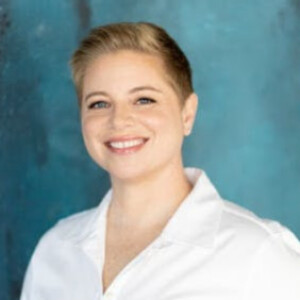
Tuesday Apr 02, 2024
Mindset Matters Diana Greshtchuk on Transformative Financial Literacy
Tuesday Apr 02, 2024
Tuesday Apr 02, 2024
Diana Greshtchuk (She/Her) is the CEO of Fan Your Flame LLC, a financial literacy coach, and your best financial friend. She is passionately committed to guiding entrepreneurs, businesses and individuals to achieve a wide variety of financial goals. Diana utilizes pioneering methods rooted in practical financial concepts, business acumen, and mindset work to educate and empower her clients to achieve goals of financial independence, transformation, and abundance.
Diana is a Certified Master Mind Magic Practitioner™ and is a Certified Emotional Intelligence Practitioner. By day, she is a VP of Fund Accounting & Finance at a private equity/venture capital firm based in Los Angeles, and holds an active Certified Public Accountant (CPA) designation in the State of California. She’s a seasoned investor, venture capitalist, and angel investor for aspiring female entrepreneurs with 20 years of experience in the financial services industry.
Diana gives back to the community by volunteering as a Board Member for the Point Foundation, a non-profit organization that empowers promising lesbian, gay, bisexual, transgender, and queer students to achieve their full academic and leadership potential –
despite the obstacles often put before them – to make a significant impact on society.
Learn more about Diana.
Learn more about The Passionistas Project.
Read the show notes.
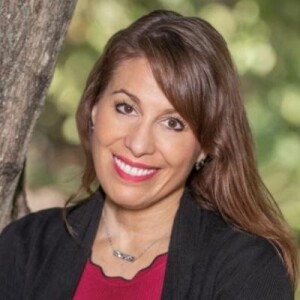
Tuesday Mar 26, 2024
From Chaos to Control: Navigating the Digital Landscape with Meredith Rhoades
Tuesday Mar 26, 2024
Tuesday Mar 26, 2024
Meredith Rhoades is an award winning Thryv Digital Business Advisor for local business owners. Meredith and her team offer an all in one software client experience platform that helps with the many things busy owners don't know how to do, want to do or have time to do. They solve the problem of using many different systems that don't talk to each other — or no software system at all — and getting everything organized in one place. From Google and online listings to social, to their website, to their estimates, invoices and payments, scheduler, calendar, reviews, documents and so much more. With a dedicated specialist, 24/7 support, and Meredith, not having to do it all on their own is the biggest problem she solves. She also provides all different online lead gen solutions.
Learn more about Meredith.
Learn more about The Passionistas Project.
Read the show notes.
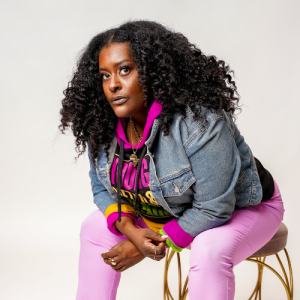
Tuesday Mar 19, 2024
Equity in Action: Crystal Lynese Walker on Creating Inclusive Workplaces
Tuesday Mar 19, 2024
Tuesday Mar 19, 2024
Crystal Lynese Walker has over 15 years of experience helping organizations develop operational processes to curate equitable and inclusive workplaces through result driven methods. With a background in organizational communication and social and economic justice, she uses cultural intelligence to catalyze change and disruption within the diversity, equity, and inclusion sector. Crystal Lynese is the Senior Director for Management Leadership for Tomorrow's Racial Equity at Work Program, leading the MLT Black Equity at Work and MLT Hispanic Equity at Work certifications to drive Black and Hispanic women, Hispanic equity across corporations in the U. S. She also serves as MLT's lead for their Affirmative Action Task Force.
Learn more about Crystal.
Learn more about The Passionistas Project.
Read the Show Notes.
![The New Zoo Review Is Coming Right [Back] at You 50 Years Since Its Debut](https://pbcdn1.podbean.com/imglogo/ep-logo/pbblog2517982/doug-momary-emmy-jo-peden-1-2_a6t2ib_300x300.png)
Tuesday Mar 12, 2024
The New Zoo Review Is Coming Right [Back] at You 50 Years Since Its Debut
Tuesday Mar 12, 2024
Tuesday Mar 12, 2024
If you're old enough like us, chances are you grew up watching The New Zoo Revue. The show was syndicated from 1972 to 1977, and episodes ran well into the 1990s with 3 million viewers per season in its heyday. After 50 years and 40 years out of the public eye, they are back. The show was the brainchild of Doug Momary, who, along with his wife, Emmy Jo, created the answer to Sesame Street, focusing on relationships and feelings. Doug wrote every song and story line for the 550 plus shows. We sat down with Doug and Emmy Jo to talk about the show.
Learn more about The New Zoo Revue.
Learn more about The Passionistas Project.
Read the Show Notes.
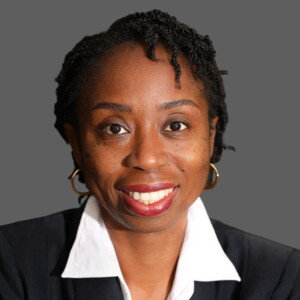
Tuesday Mar 05, 2024
Optimizing Brain Health with Dr. Hokehe Eko
Tuesday Mar 05, 2024
Tuesday Mar 05, 2024
Dr. Hokehe Eko is a mom, board certified pediatrician, TEDx speaker, author and CEO of GLOW Pediatrics, LLC. She partners with parents and children of ADHD and autism to address the root causes of their children's behaviors so they glow with health from the inside out. She's also the CEO of Kids of Hope, a5013c organization sharing love, hope and dignity with children in foster care.
Learn more about Dr. Eko.
Learn more about The Passionistas Project.
Read the Show Notes.
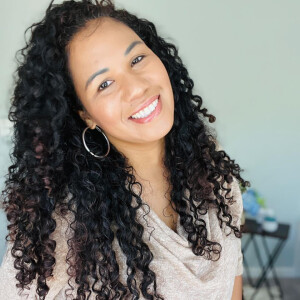
Tuesday Feb 27, 2024
Love, Relationships & a New You with Vee Christian
Tuesday Feb 27, 2024
Tuesday Feb 27, 2024
Vee Christian is the founder of the Mindful Love Relationships & New You Coaching. Vee is a highly successful certified relationship coach and published author of two books “They Tried. You Won.” and “Ladies Leave Your Dick at Home.” She has a 100% success rate for helping clients remove the blocks to attract an exclusive relationship and has been coaching for nearly 15 years. She enjoys helping her clients heal from heartbreak, toxic relationships and attachment style issues, as well as attract and maintain healthy love.
Learn more about Vee.
Learn more about The Passionistas Project.
Read the Show Notes.
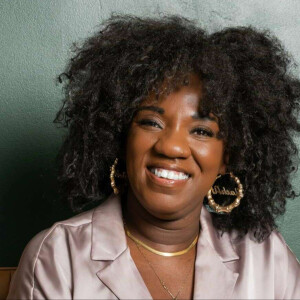
Tuesday Feb 20, 2024
Tools for Success: Nikki Porcher's Mission for Black Women Entrepreneurs
Tuesday Feb 20, 2024
Tuesday Feb 20, 2024
Nikki Porcher is the Founder of Buy From a Black Woman. Nikki ensures that Black women are seen, supported and heard. She opens doors for Black women business owners and advocates for them at every level of the business ecosystem. She pushes for change at the policy level, champions supplier diversity at the corporate level, mentors Black women, founders at the business level, and also educates consumers on how to support Black women entrepreneurs consciously, sustainably and long term. She's managed to get incredible results because of her approach.
Learn more about Nikki.
Learn more about The Passionistas Project.
Read the Show Notes.
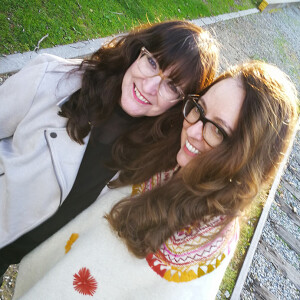
Tuesday Feb 13, 2024
Tuesday Feb 13, 2024
Passionistas Project Founders Amy and Nancy Harrington, chat with Power Passionista Julie DeLucca-Collins to share their journey to launching The Passionistas Project Sisterhood. They take a deep dive into their inclusive sisterhood where passion-driven women come to get support, find their purpose and feel empowered to transform their lives and change the world.
Learn more about Julie.
Learn more about The Passionistas Project.
Learn more about The Passionistas Project sisterhood.
Read the show notes.
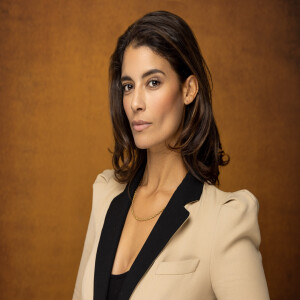
Tuesday Jan 30, 2024
True Blood to True Love: Jessica Clark's Evolution as an Actor and Advocate
Tuesday Jan 30, 2024
Tuesday Jan 30, 2024
Jessica Clark is an out queer actor of projects such as True Blood, Alien Harvest and the film A Perfect Ending. Now she brings us her latest project coming out for Love The first US dating competition show focused on queer women, 16 women who love women. And one romantic lead all live under the same roof in the Palm Palace of Palm Springs.
Learn more about Jessica.
Learn more about Coming Out for Love.
Learn more about The Passionistas Project.
Read the show notes.
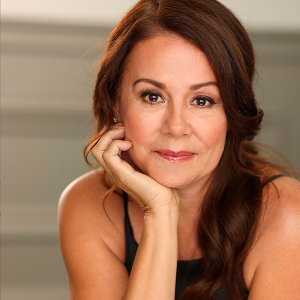
Tuesday Jan 23, 2024
Tuesday Jan 23, 2024
Patricia Rae has been a professional actor for the past 35 years. An outspoken activist for racial and gender equality, she's struggled to make Latinas visible in a positive light in television and film. Her big break came in an Oscar nominated film where she portrayed a Colombian immigrant living in New York City.
Learn more about Patricia.
Learn more about The Passionistas Project.
Read the show notes.

